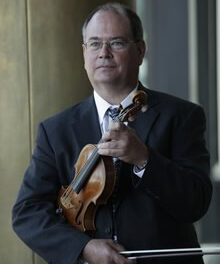There are some cultural combinations that upon first impression seem quite ludicrous, have little or nothing in common, but in the end surprise you with their commonality. Such was the case with Carolina Performing Arts, in conjunction with the Center for the Study of the American South’s presentation of Abigail Washburn at UNC-Chapel Hill’s Memorial Auditorium. Being a novice to Ms. Washburn’s music, I initially found her to be very talented but pretty much just another banjo pickin’ old-timey bluegrass performer. That was quickly dispelled as I fell under the spell of a remarkable melding of American and Chinese cultures, all within the framework of American Roots music.
Ms. Washburn and fellow musical traveler Kai Welch came out and, to be honest, launched into a somewhat banal folksie song that did not augur too well for the rest of the evening. That assessment changed almost immediately, both musically and through the force of their delightful personalities and stage personas. Washburn, married to fellow banjo virtuoso Béla Fleck, is a master of the clawhammer style of banjo playing. This is a method of picking where, unlike traditional banjo and guitar styles that involve the fingers plucking up while the thumb plucks down, it is all fingers and thumb downpicks. This is a style featured in much of Appalachian music as practiced by her mentor, the recently deceased Doc Watson. Kai Welch, a multi-instrumentalist now living in Nashville, is the self-described son of hippies whose curiosity of different cultures led him to living on several islands in the South Pacific. Together they performed “Changes,” one of Kai’s songs describing his hopes while working in a car wash of someday doing precisely what he was doing tonight.
Pretty standard stuff so far. However, this typical looking country girl became enamored of China in 1996, traveled and lived there extensively and speaks fluent Mandarin Chinese. Along the way she met many musicians in China and one of them was here tonight. Wu Fei is a master of the guzheng, a zither-like instrument that has anywhere from 18-25 strings with a moveable bridge that changes the pitch. It is a deeply resonant instrument, especially the lowest bass notes which have a centered, clear booming sound that far surpasses that of a piano’s lower register. They played a stunningly beautiful piece called “Dreams of Nectar” that featured Welch on trumpet accompanied by banjo and guzheng, orchestration that I’ll bet no reader has heard before! There was always something new and/or different during this concert and that included a performance of the gospel “Keys to the Kingdom” where they all abandoned their microphones and came down off the stage to the raised pit floor.
In addition to the wonderful and unique musicianship, the evening was filled with great stories and a true rapport between performers and audience. When it was revealed that Abigail was six months pregnant, she showed her profile to much applause. Her response was, “it’s a little creepy to get applause for having sex!” She also showed us how her banjos have an open back, so the baby has had a banjo hat for all these months and it will be interesting to see his/her reaction to that sound after birth.
At the end of the first half of a performance that few of us had experienced before, Abigail said “you ain’t seen/heard nothing yet — get ready for Wu Force after intermission.” That was certainly an understatement. In dimmed lighting they came out with bizarre headgear, all performers remained seated, and we heard a combination of translations of Chinese poetry and authentic Chinese styles of singing, often to a bluegrass-tinged background. It wasn’t all solemn philosophizing as one of the highlights was the song “There’s a Lot of Pressure” where Wu Fei and Abigail sounded like a 60s Girls Group answering Kai’s tales of woe. Finally they ended with a North Carolina mountain song from the 1930s, “Banjo Pickin’ Girl.” By now it seemed perfectly natural to have the ancient Chinese instrument pickin’ along in authentic bluegrass style with Washburn’s virtuosic banjo playing and Kai’s guitar work.
But, the best was saved for the encore — the audience refused to let the performers go without one. The Appalachian hymn “Bright Morning Star” was given a reading that had everyone transfixed from the beauty and emotion within the simplicity of that hymn. I have definitely become a fan and urge those, like me, who were unaware of this great artist to give her recordings and/or live performances a try.











